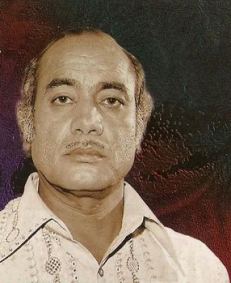25 SONGS MY MEHDI HASSAN:

Mehdi Hassan Khan (18 July 1927 – 13 June 2012) was a Pakistani Ghazal singer and a former playback singer for Lollywood. One of the greatest and most influential figures in the history of Ghazal, he is famously known as the "King of Ghazal" or the "Shahanshah-e-Ghazal". Known for his "haunting" baritone voice, Mehdi is credited with bringing ghazal singing to a wide audience. Born to a musical family, he influenced generations of singers from diverse genres, from Jagjit Singh to Sonu Nigam. He earned numerous awards and accolades in his career and remained a leading singer of film industry along with Ahmad Rushdi.



















